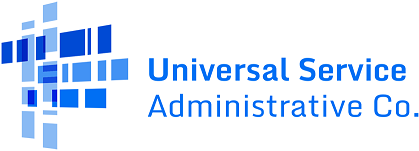Non-Traditional Education Eligibility
The Eligibility Table for non-traditional K-12 students and facilities provides information on Schools and Libraries (E-Rate) program support eligibility for students and facilities in Head Start, pre-kindergarten, adult education, and juvenile justice programs. To be eligible for support, schools must provide elementary or secondary education as determined by state law.
The eligibility of an entity is based on whether the entity provides elementary or secondary education to its student population and whether the school facility is eligible for support because elementary and secondary education is provided at that facility.
USAC must look to state law to determine whether Head Start, pre-kindergarten, juvenile justice, or adult education being provided fits within the state’s definition of elementary and secondary education and whether the school facility fits within the state’s definition of an elementary or secondary school.
USAC conducts a biennial survey of states to determine if Head Start, pre-kindergarten, adult education, and juvenile justice students and facilities are included in the state’s definition of elementary or secondary education. State officials are required to provide legal support for the information they supply and to certify the accuracy of their determinations.
Non-Traditional Students Eligibility
Head Start students are eligible for funding if the law in that state includes Head Start education within its definition of elementary education. However, services provided to students less than three years old are not eligible for discounts. You should review the eligibility table carefully for eligibility conditions specific to your state.
Pre-kindergarten students are eligible for funding if the law in that state includes pre-kindergarten education within its definition of elementary education.
Juvenile justice students are eligible for funding if the law in that state includes education for students in juvenile justice facilities within its definition of elementary or secondary education.
Adult education students are eligible for funding if the law in that state includes education for adults within its definition of elementary or secondary education. Adult education typically refers to high school graduate equivalency programs. USAC does not fund any post-secondary school education.
Non-Traditional Facilities Eligibility
Separate facilities that provide elementary or secondary education to these student populations are eligible for support if the law in that state includes education for students in these populations within its definition of elementary or secondary education and if the school facility fits within the definition of an elementary or secondary school.
Home-based Head Start programs are not eligible for support from the E-Rate program. In some states, non-traditional student populations are eligible for support but the separate facilities in which their education is provided are not. If the facility is not eligible but the students are served by a specific school district, that district must include the students eligible for the National School Lunch Program (NSLP) in its discount calculation but cost-allocate out any services provided to them at separate facilities (in other words, any buildings that are not part of an eligible school).
Important Information for Head Start Eligibility
In order to be eligible to receive support from the E-Rate program, Head Start entities must meet the federal and state definitions of elementary school. This means that the state must first consider these facilities to be schools and then USAC will determine if Head Start schools in a particular state are eligible.
It is possible that some Head Start programs in a state will be able to meet both parts of the test and therefore be eligible for funding, while others will not. For example, a Head Start center that is not considered a school in a particular state is not eligible for funding even if the Eligibility Table indicates that Head Start facilities in that state are eligible. You should check with your state department of education for more information on your status.
School Residential Facilities
Starting in FY2011, the following school residential facilities became eligible for discounts:
- Schools on Tribal lands;
- Schools that serve children with physical, cognitive, and behavioral disabilities;
- Schools that serve children with medical needs;
- Juvenile justice schools, where eligible; and
- Schools with 35 percent or more students eligible for the National School Lunch Program (NSLP).
